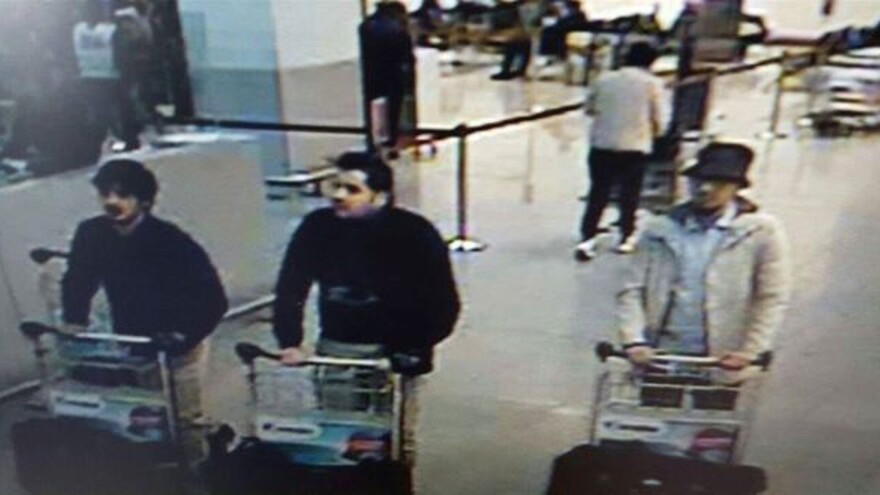"What we feared has happened," said Charles Michel, the Belgian prime minister, following Tuesday's back-to-back attacks in Brussels, his country's capital. The Paris terrorist attacks of last November were rooted in this city. A manhunt for Paris suspect Salah Abdeslam had finally ended in his arrest Friday by Brussels police. But on Tuesday, Belgium took a direct hit.
The attacks began just northeast of the city, at the international airport in Zaventem. About 8 a.m., two blasts detonated in the departures terminal, filled with travelers from around the world on the move during a busy Easter week. Within seconds, at least a dozen of them lay dead; hundreds of others bled from injuries. Windows shattered and blew out; sections of the ceiling collapsed. Smoke filled the air.

Police tried to impose order and directed survivors to safety. Hundreds of passengers emerged, terrified and bewildered, bundled in jackets and coats. Many were loaded onto buses; others dragged wheelie bags along the streets and comforted one another as they contemplated where to go next. The day was just beginning.

It didn't take long — about an hour — for the next attacker or attackers to strike, this time at the city's heart. Shortly after 9 a.m., a blast took place on a train approaching the Maelbeek metro station, smack in the middle of the subway network, the stop nearest the city's halls of highest power. Brussels isn't just Belgium's capital, it's also the capital of Europe, home to the European Parliament, the European Union and all its associated offices. Maelbeek is the stop used by those who work at or visit these institutions and offices. "Terrorists struck Brussels," French President Francois Hollande said, "but it was Europe that was targeted."
Some of the passengers who survived fled the darkened subway car onto the tracks. Above ground, emergency workers converged, blockaded the area, carried out the dead and wounded and helped the rest to safety. Forensics experts took over. At least 20 people had died.


Three possible suspects in the attacks — which were claimed later in the day by ISIS, praising its "fighters" – appeared in a Brussels airport surveillance image from Tuesday morning. Police asked for the public's help in identifying them. The man in the hat is of particular interest, believed to be the lone survivor of the three.

By late morning and through late afternoon, the city was strangely quiet. The Maelbeek stop was shuttered. The metro system was closed, along with the city's airports and train stations. Soldiers patrolled the streets. When the Gare du Nord railway station reopened at 4 p.m., the trains ran smoothly, but full-body searches were underway for passengers. Children, finally allowed to leave school, returned home. In the early evening, Belgium's King Philippe made a rare address to his country's 11 million people, calling the attacks "cowardly and odious."


The city's central square, the Grand Place, two stops from Maelbeek and usually thronged with people, was largely deserted.

By nightfall, people had gathered in various parts of the city with candles, flowers, national flags — all the elements necessary for impromptu tributes to victims and survivors of tragedy, a tradition in Europe that's become all too familiar.
But it will never be normal.

Keep up with NPR coverage of the Brussels attacks here and learn more here.
Copyright 2023 NPR. To see more, visit https://www.npr.org.




